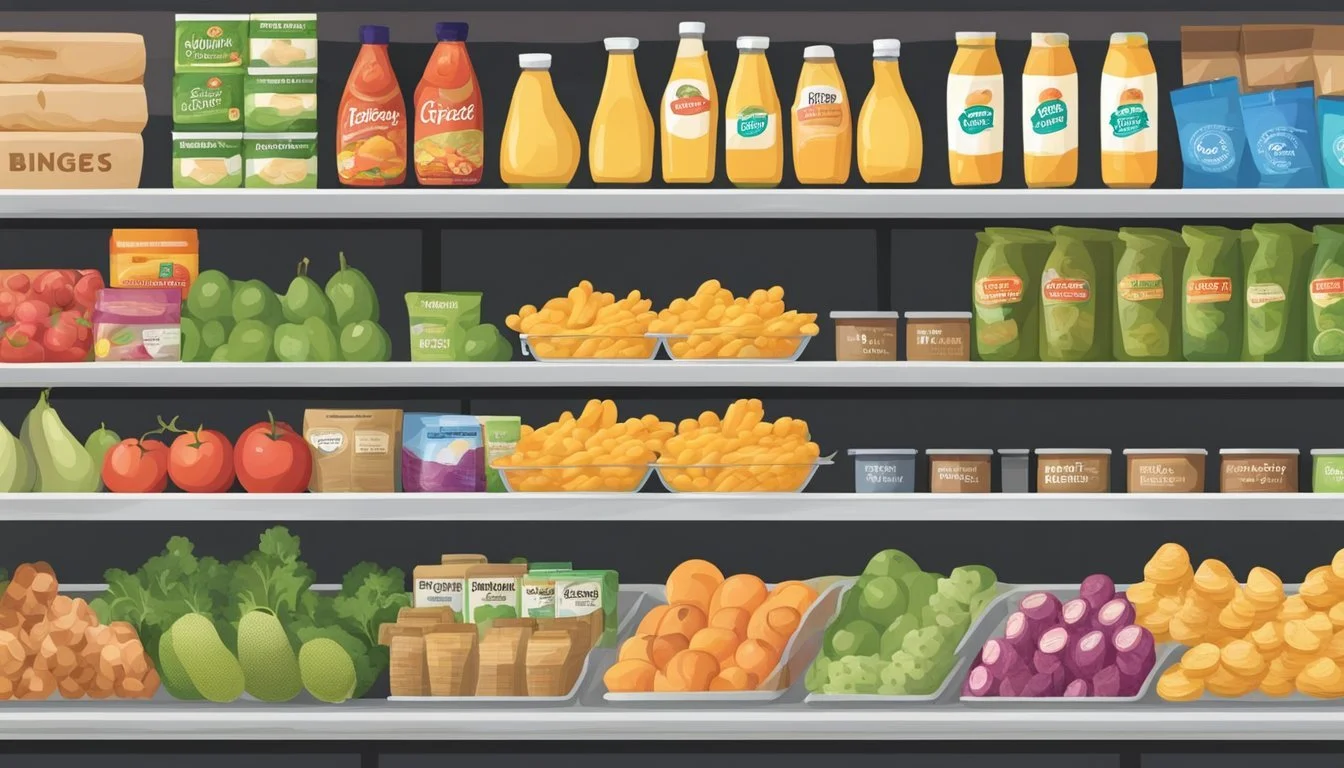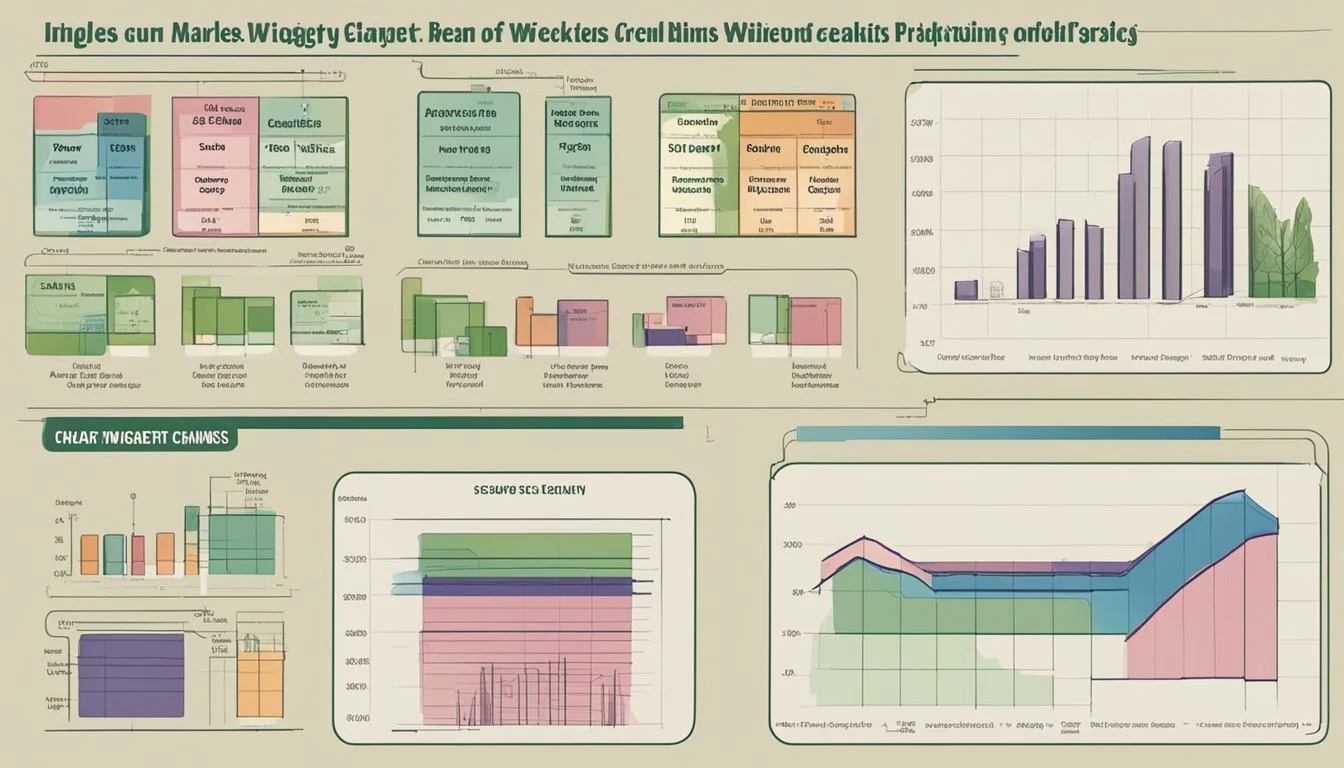Is Ingles Markets Cheaper Than Piggly Wiggly?
A Price Comparison of Two Southern Grocery Chains
Grocery shopping can be a significant expense for many households, making it essential to find the best deals. Two well-known supermarket chains in the southeastern United States, Ingles Markets and Piggly Wiggly, often compete for budget-conscious consumers.
While prices can vary by location and specific items, Piggly Wiggly is generally considered to be cheaper than Ingles Markets. Piggly Wiggly has built a reputation for offering lower prices on many everyday items compared to other regional chains. This pricing strategy has helped the company maintain a loyal customer base in the competitive grocery market.
Ingles Markets, on the other hand, focuses on providing a wider range of products and services. With nearly 200 stores across six states, Ingles offers competitive prices but may not always match the lowest prices of discount-oriented chains like Piggly Wiggly. Shoppers looking for the absolute lowest prices might find better deals at Piggly Wiggly, while those seeking a broader selection may prefer Ingles Markets.
Overview of Ingles Markets and Piggly Wiggly
Ingles Markets and Piggly Wiggly are two prominent supermarket chains with rich histories and significant presence in the American grocery landscape. Both companies have played important roles in shaping the modern supermarket experience.
History and Expansion
Piggly Wiggly, founded by Clarence Saunders in 1916 in Memphis, Tennessee, revolutionized the grocery industry as the first true self-service store. This innovative concept allowed customers to select their own goods, dramatically reducing operating costs and prices.
Ingles Markets, established later in 1963, began as a small chain in Asheville, North Carolina. The company expanded steadily throughout the southeastern United States, focusing on rural and suburban areas often overlooked by larger chains.
Both supermarkets grew from single locations into regional powerhouses. Piggly Wiggly's franchise model enabled rapid expansion across the South and Midwest. Ingles pursued a more controlled growth strategy, maintaining direct ownership of its stores.
Store Presence and Locations
Piggly Wiggly operates primarily in the Southern and Midwestern United States. The chain has a strong presence in states like Alabama, Louisiana, and Texas. Its franchise model has allowed for widespread distribution, with stores adapting to local market needs.
Ingles Markets concentrates its operations in six southeastern states:
Georgia
North Carolina
South Carolina
Tennessee
Alabama
Virginia
Ingles typically operates larger format stores, often featuring additional departments like pharmacies and fuel centers. The company owns many of its store locations, giving it greater control over its real estate portfolio.
Assessing Product Range and Selection
Ingles Markets and Piggly Wiggly offer distinct product ranges and selections. Both stores provide essential grocery items but differ in their offerings across various departments.
Variety in Produce, Meats, and Deli
Ingles Markets typically boasts a wider selection of fresh produce, often featuring locally sourced fruits and vegetables. Their meat department offers a diverse range of cuts and preparations, including organic and grass-fed options.
Piggly Wiggly's produce section, while smaller, focuses on affordability. The store is known for its competitive pricing on staple fruits and vegetables.
In the deli, Ingles usually provides a more extensive array of prepared foods and specialty cheeses. Piggly Wiggly's deli offerings are more basic but cater well to local tastes.
Availability of Pantry Staples and Frozen Foods
Both stores stock essential pantry items like canned goods, pasta, and baking supplies. Ingles Markets often carries a broader range of brands and specialty items in these categories.
Frozen food selections at Ingles tend to be more expansive, including a variety of prepared meals, international cuisines, and premium ice cream brands.
Piggly Wiggly focuses on popular frozen food staples and budget-friendly options. Their frozen section is typically smaller but well-stocked with familiar brands.
Specialty and Household Items
Ingles Markets generally offers a more extensive selection of specialty foods, including organic, gluten-free, and international products. Their household goods section is usually larger, featuring a wide range of cleaning supplies, pet products, and personal care items.
Piggly Wiggly's specialty food options are more limited but often include regional favorites. Their household items section is typically more compact, focusing on essential products at competitive prices.
Both stores carry basic health and beauty products, but Ingles usually provides a wider variety of brands and premium options.
Price Comparison across Key Grocery Items
Ingles Markets and Piggly Wiggly offer competitive pricing on many staple grocery items. Both chains employ various strategies to attract budget-conscious shoppers.
Analyzing Everyday Low Prices and Discounts
Ingles Markets frequently offers lower prices on produce and dairy products compared to Piggly Wiggly. Fresh fruits and vegetables at Ingles are often priced 5-10% less. Milk, eggs, and cheese also tend to be more affordable at Ingles.
Piggly Wiggly, however, often has better deals on packaged goods and frozen items. Their store brand products are typically priced 10-15% lower than national brands at both stores.
Meat prices fluctuate between the two chains. Ingles sometimes has better prices on poultry, while Piggly Wiggly may offer cheaper cuts of beef and pork.
Examination of Sales, Promotions, and Coupons
Both stores run weekly sales and accept manufacturer coupons. Ingles' loyalty program provides personalized discounts and fuel points. Members can save up to 20% on selected items each week.
Piggly Wiggly offers "Pig of the Week" specials, featuring deep discounts on specific products. These deals can save shoppers 30-50% on featured items.
Ingles has a more robust digital coupon platform, allowing customers to clip coupons online and apply them automatically at checkout. Piggly Wiggly's paper-based circular sometimes includes exclusive in-store coupons not available at Ingles.
Both chains run seasonal promotions, but Ingles tends to offer more frequent buy-one-get-one deals on popular items.
Quality and Freshness of Products
Ingles Markets and Piggly Wiggly both strive to offer quality products to their customers. Ingles Markets emphasizes its fresh market concept, featuring a wide selection of produce and meats.
The produce sections at both stores stock a variety of fruits and vegetables. Ingles Markets often highlights locally sourced items when available, supporting regional farmers.
Piggly Wiggly stores maintain a focus on fresh products as well. Their meat departments typically offer custom cuts and specialty items to cater to customer preferences.
Quality control measures are in place at both chains to ensure food safety and freshness. Regular inspections and strict handling procedures help maintain product integrity.
Ingles Markets has invested in modernizing many of its stores, which can contribute to a more appealing shopping environment for fresh goods. This includes updated refrigeration and display units.
Piggly Wiggly stores, while sometimes smaller, often prioritize their fresh offerings as a key differentiator in local markets. Their produce and meat sections form an important part of their product mix.
Customer perceptions of quality may vary between individual store locations of both chains. Factors such as store management and local supply chains can influence the consistency of fresh product offerings.
Comparison of Shopping Experience
Ingles Markets and Piggly Wiggly offer distinct shopping experiences that cater to different customer preferences. Their approaches to customer service, store layouts, and additional services shape the overall atmosphere for shoppers.
Customer Service and Support
Piggly Wiggly emphasizes a community-oriented approach, often fostering a friendly and personal atmosphere. Staff members tend to be familiar with regular customers, creating a more intimate shopping environment.
Ingles Markets typically provides professional and efficient service, with employees trained to assist customers in finding items quickly. Their larger stores may offer more specialized departments with knowledgeable staff.
Both chains generally prioritize customer satisfaction, but the execution differs based on store size and location. Piggly Wiggly's smaller footprint can lead to more personalized interactions, while Ingles' wider range of products may require more diverse customer support.
Store Layout and Checkout Efficiency
Piggly Wiggly stores are often compact, making navigation simpler for shoppers with small grocery lists. The layout typically focuses on essentials, allowing for quick trips.
Ingles Markets usually feature larger floor plans with wider aisles and more extensive product selections. This can be beneficial for comprehensive shopping but may require more time to traverse.
Checkout efficiency varies between the two chains. Piggly Wiggly's smaller stores may have fewer checkout stands but potentially shorter lines. Ingles Markets commonly offer more checkout options, including self-service kiosks, which can speed up the process during busy periods.
Additional Services such as Pharmacy
Ingles Markets frequently include full-service pharmacies within their stores, providing convenience for customers who need to fill prescriptions while grocery shopping. Many locations also offer immunization services and medication consultations.
Piggly Wiggly stores, due to their typically smaller size, may not always include pharmacy services. When available, their pharmacies tend to be more limited in scope compared to Ingles.
Both chains may offer additional services like money orders, bill payment, and basic banking. Ingles Markets often provide a wider array of these services, potentially including fuel stations and car washes at some locations.
Analysis of Distribution and Supply Chain
Ingles Markets and Piggly Wiggly employ different distribution strategies that impact their pricing. Ingles operates its own distribution center, allowing for greater control over supply chain costs.
Piggly Wiggly stores are often independently owned and operated. This can lead to variations in pricing and distribution efficiency between locations.
Ingles' centralized distribution model enables bulk purchasing and streamlined logistics. This potentially results in cost savings that can be passed on to customers.
Piggly Wiggly's more decentralized approach may incur higher distribution costs for individual stores. However, it also allows for greater flexibility in sourcing local products.
Both chains face competition from larger retailers like Walmart, which benefit from extensive distribution networks. Walmart's scale often allows for lower prices across a wide range of products.
Regional presence plays a role in distribution efficiency. Ingles focuses primarily on the southeastern United States, while Piggly Wiggly has a broader but more scattered footprint.
Supply chain management directly impacts shelf prices. Ingles' vertical integration may provide an advantage in controlling these costs compared to some Piggly Wiggly locations.
Ultimately, the impact of distribution on pricing can vary by specific store location and region for both chains.
Other Retailers as Alternatives
When comparing grocery options, it's valuable to consider a range of retailers beyond Ingles Markets and Piggly Wiggly. Various stores offer distinct advantages in pricing, selection, and shopping experience.
Large Chains like Walmart and Costco
Walmart and Costco are major players in the grocery market, known for competitive pricing on a wide range of products. Walmart's extensive network of stores and online presence make it a convenient one-stop shop for many consumers. The retailer often beats competitors on price for common grocery items.
Costco's bulk-buying model can lead to significant savings for shoppers willing to purchase larger quantities. While requiring a membership fee, Costco's prices on groceries, household goods, and specialty items often offset this cost for regular customers.
Both chains leverage their size to negotiate lower prices from suppliers, potentially offering better deals than smaller regional grocers.
Regional Supermarkets and Specialty Stores
Regional chains like Publix, Kroger, and H-E-B have strong followings in their respective areas. These stores often balance competitive pricing with a focus on customer service and community engagement.
Kroger, for instance, operates under various banners across the U.S. and offers a popular loyalty program. Publix is known for its BOGO deals and high-quality store brands.
Specialty stores like Trader Joe's and Aldi provide unique shopping experiences. Aldi focuses on private-label products and a no-frills approach to keep prices low. Trader Joe's offers a curated selection of often exclusive products at reasonable prices.
Analysis of Boutique and Health-Oriented Markets
Health-focused chains like Whole Foods Market and Sprouts Farmers Market cater to consumers seeking organic and natural products. While often perceived as more expensive, these stores can be competitive on specific items.
Whole Foods, now owned by Amazon, has introduced more competitive pricing and exclusive deals for Prime members. Sprouts emphasizes fresh produce and bulk foods, often at prices comparable to conventional supermarkets for these categories.
Wegmans, though regional, has a cult following for its extensive selection and in-store dining options. Despite its upscale image, Wegmans works to keep staple items affordably priced.
These boutique markets often excel in offering unique or hard-to-find products, justifying higher prices for some shoppers.
Branding and Customer Perception
Ingles Markets and Piggly Wiggly have distinct brand identities that shape customer perceptions. Ingles Markets positions itself as a regional supermarket chain focused on quality and value.
Piggly Wiggly, with its unique name and mascot, is recognized for its historical significance as the first self-service grocery store. This heritage contributes to its image as a traditional, community-oriented retailer.
Both chains offer private label products. Ingles Markets' Laura Lynn brand is known for offering quality items at competitive prices. This helps bolster Ingles' reputation for value.
Customer perception of pricing varies between the two stores. While both aim to provide affordable options, individual experiences and local market conditions influence shoppers' views on which store offers better prices.
Quality perception is another key factor. Ingles Markets emphasizes fresh produce and meat departments, which can positively impact customers' overall quality assessment.
Piggly Wiggly's focus on community involvement and personalized service often resonates with shoppers who value a more intimate shopping experience. This can lead to strong customer loyalty in its operating areas.
Conclusions and Final Considerations
Comparing prices between Ingles Markets and Piggly Wiggly can help shoppers save money on groceries. Both stores offer competitive pricing on many items, though specific deals may vary by location and season.
Ingles Markets tends to have a wider selection of national brands and specialty products. This can appeal to shoppers looking for more variety, but may come at a higher price point for some items.
Piggly Wiggly often focuses on regional products and local brands. This localized approach can lead to lower prices on certain goods, especially produce and meats sourced from nearby suppliers.
For budget-conscious consumers, the best strategy is to compare weekly sales and use loyalty programs at both stores. Taking advantage of promotions and discounts can yield significant savings over time.
The shopping experience differs between the two chains. Ingles Markets typically offers larger stores with more amenities. Piggly Wiggly provides a smaller, community-oriented atmosphere that some shoppers prefer.
Ultimately, the cheapest option depends on individual shopping habits and priorities. Savvy consumers can benefit from shopping at both stores, selecting the best deals from each to maximize their grocery budget.








